As a company, we believe the next generation of thought leaders will be firmly entrenched in the technology space. It’s one of the reasons we partnered with East Tennessee State University (ETSU) to launch the BlueSky Tennessee Institute, a workforce development program that offers a path to a bachelor’s degree in computer science and a job offer in just 27 months.
This past August, BlueSky Institute celebrated the arrival of its second cohort, bringing its current total enrollment to 60+ students. To help prepare these students for careers in tech, BlueCross and ETSU recognized the need to expand the teaching faculty on the BlueCross campus.
Instructors Benjamin Burton and William Rochelle joined the BlueSky Institute team last summer. Both are graduates of the ETSU Master of Computer Science program and now live in Chattanooga.
Between them, they teach a variety of information technology, programming, and career readiness classes in person and year-round at the BlueSky campus on site at the BlueCross headquarters.
Here, Benjamin and William discuss why BlueCross and ETSU are ideal partners for this initiative, their approaches to teaching, and how they measure success for their students.
When did your interest in computer science begin?
Benjamin: When I was growing up, my grandmother would give my family her old computers. I was always fascinated with how they operated and wanted to learn more. Since they were from the Windows 95/98 era, I would shop at thrift stores for parts, trying to upgrade them. I also have to credit my teachers in middle and high school for inspiring me to learn more about computers and technology.
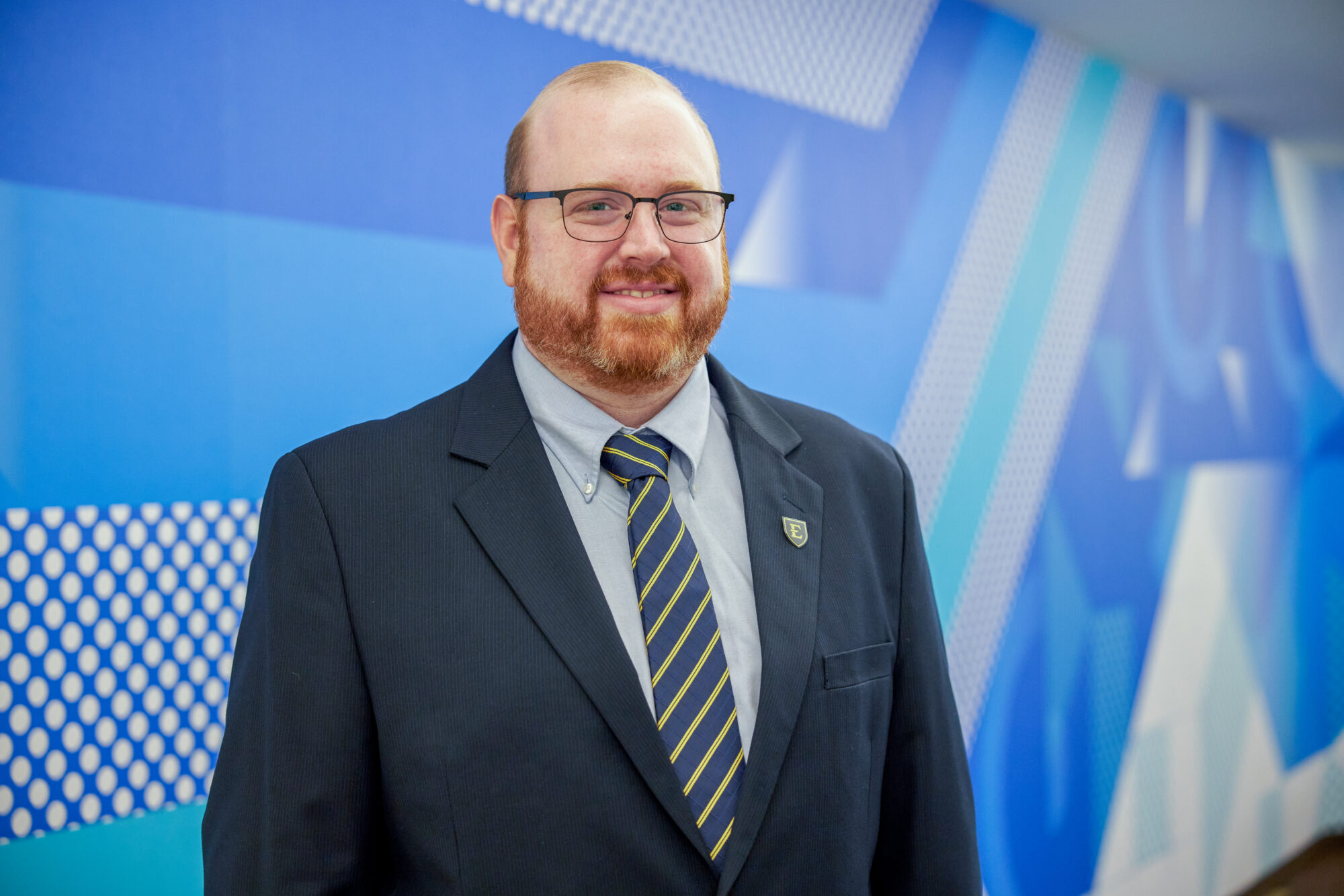
William: When I started my undergraduate degree at ETSU, I was a biology student and wanted to do ophthalmology. Then I witnessed eye surgery and thought, “No, this is not for me” [laughs]. But I ended up doing computer science because a few of my friends were doing it. I love playing games and thought I’d give it a shot.
How did you find your way to education?
Benjamin: After I graduated from the master’s program at ETSU, I was hired by a high school in Kingsport as an IT support technician. After a few years in that position the administrators said, “You connect with and explain things really well to the students, you ought to become a teacher.” So I got my occupational teaching license, moved to Chattanooga and taught high school IT and cybersecurity for five years in Hamilton County schools.
“Even before BlueSky Institute and ETSU were on my radar, my career goal was to get into higher ed. And this opportunity was unlike anything I’d ever heard about.” —Benjamin Burton
William: I was also at ETSU for grad school. As part of my scholarship I was told, “We’ll pay your tuition if you teach a ‘how to use computers’ class to students who are 2-3 years younger than you, about 40 of them at a time.” That course was basically computer literacy, because unlike BlueSky Institute students, ETSU didn’t have a baseline for how well incoming freshmen knew basic computer stuff.
Over time, I started really liking that aspect of talking to the different groups of people and helping them try to figure stuff out.
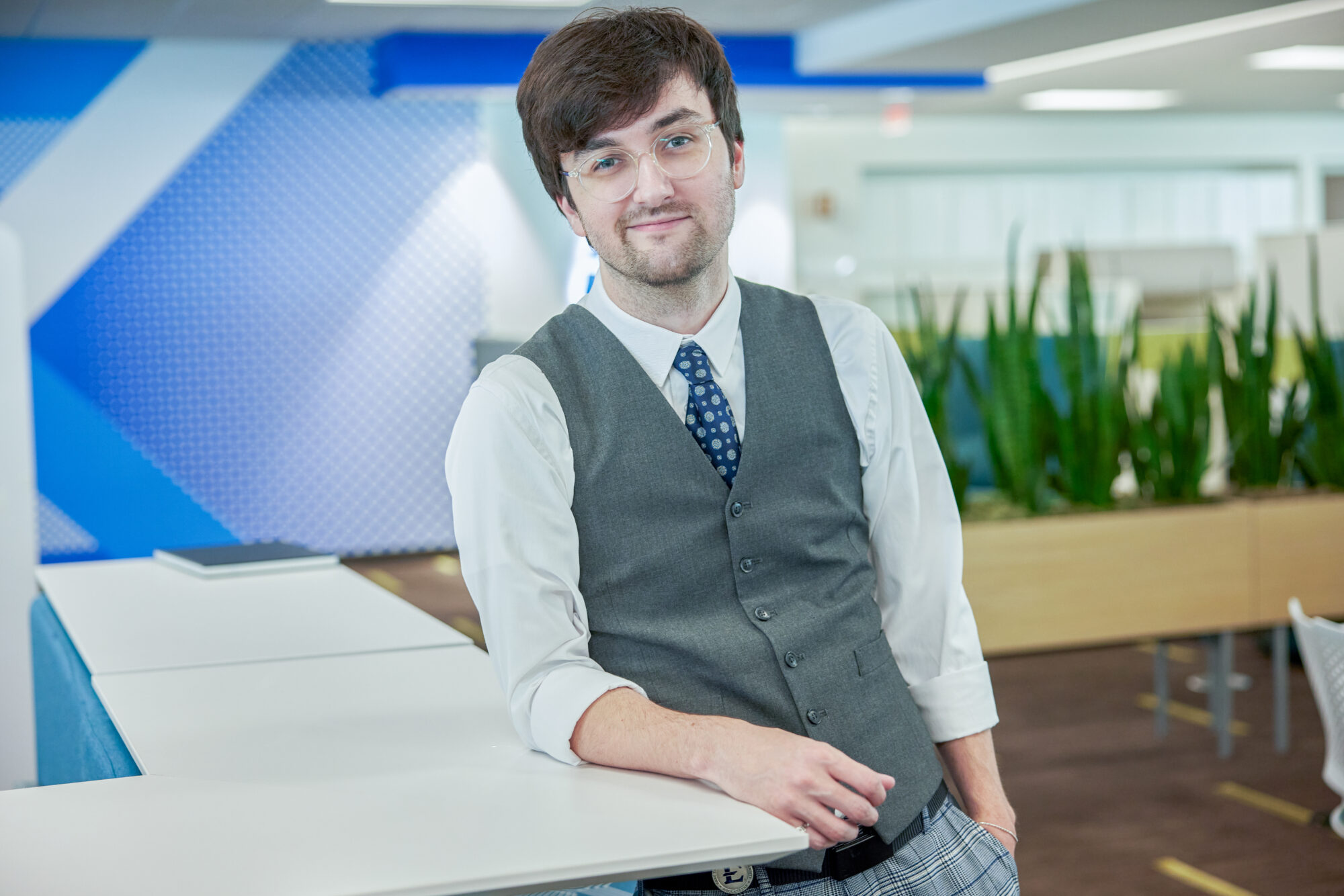
How did you learn about BlueSky Tennessee Institute? What aspects of the program appealed to you?
Benjamin: I knew ETSU had partnered with BlueCross, and I still had contacts in ETSU’s computer science department. They contacted me, let me know they were looking to expand their faculty and needed qualified candidates, and encouraged me to apply. My high school students had also attended the Game Design Challenges BlueSky hosted, which allowed me to learn more about BlueCross and the program. All the doors seemed to open at once.
William: Before coming to BlueSky Institute, my favorite classes to teach were honors classes. Those students truly enjoyed it, and they’ll do more than you ask them to do, just because they think it’s fun. I love that kind of environment, and I think BlueSky Institute provides it.
I was working on ETSU’s main campus and was asked to be part of our department’s BlueSky Institute committee.
“We would travel to Chattanooga and interview prospective students. Through that process, especially meeting the Cohort 2 students and seeing how excited they were for this opportunity, I thought, ‘This is pretty cool. How can I contribute to this?’” —William Rochelle
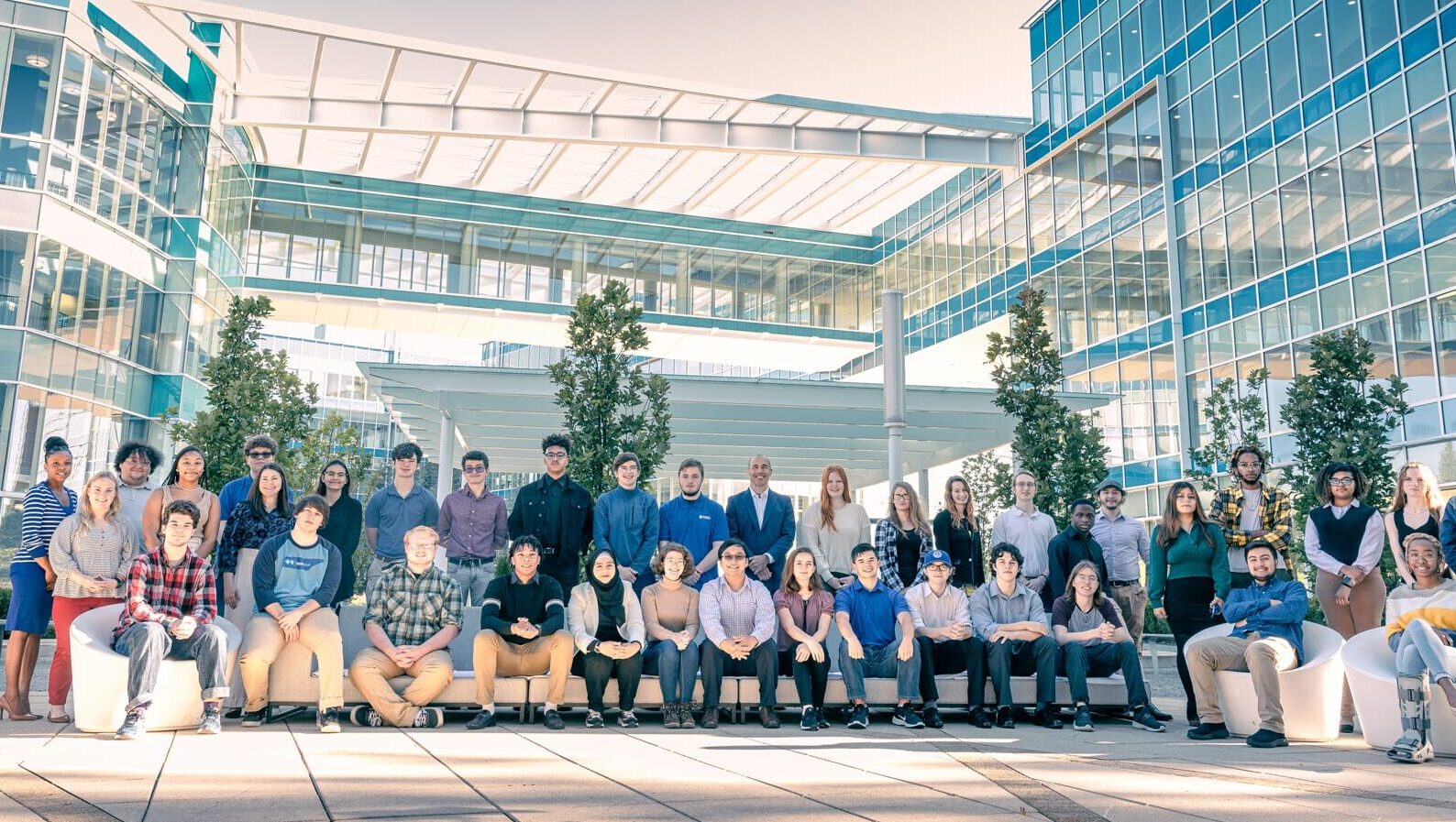
What makes ETSU and BlueCross ideal partners?
Benjamin: ETSU’s computer science program is different than others in the state.
“At ETSU, we have a better connection with businesses like BlueCross because what we teach is aligned with what students are going to see when they get out of school and into the working world.” —Benjamin Burton
It’s challenging for BlueCross to be in this position. They’ve made a substantial investment in the program. But I think at the end of this year, when our first cohort graduates, we’re all going to say, “Wow, these students completed a degree in 27 months. They got to work with BlueCross employees, they had mentors, they got internships, they got on-the-job experience, they’re set up for a career.” And that’s an experience not a lot of college students have. This partnership bridges that gap — many BlueSky students will get a degree and a job offer.
William: I agree. We’re committed to preparing students for a business career. Digging into that, I’m teaching them, “How do you work on a team? How are you held accountable when you’re working with a group of people? How do you stay on top of communication? How can you be productive?” And BlueCross has provided a great support system for me and Ben to ensure these students have the experience needed to answer those questions for themselves.
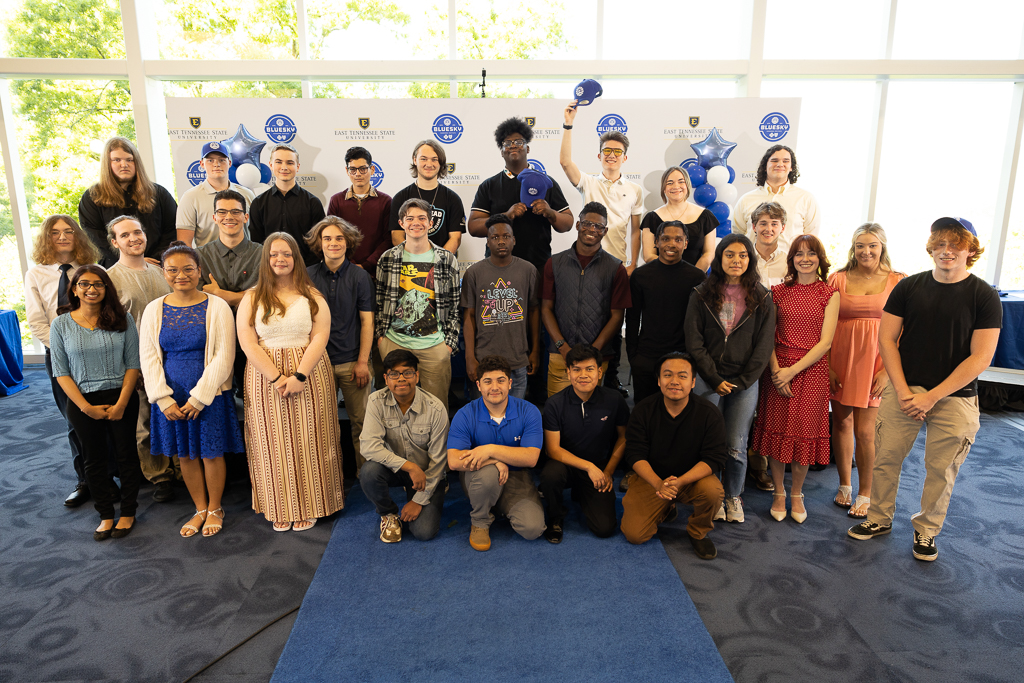
How would you describe your teaching style?
Benjamin: With your traditional college class, it might be just lecture, lecture, lecture. And I hate lecture [laughs]. I don’t learn that way, I learn by doing. And I feel these students work that way, too. With the courses I teach, I’m only seeing students twice a week, so we do a lot more lab-based classes with more hands-on stuff. In a normal class we’ll be tearing apart a computer or jumping into an ethical hacking lab. Engaging students in the classroom can be tricky, so I’m always trying to find the “Why” to bring meaning to the activities we do.
You’ve got to get your hands dirty. And that’s where BlueCross is really going to be good for these students and their internships. They actually get to experience the real world, not just the typical “college bubble” most college students experience.
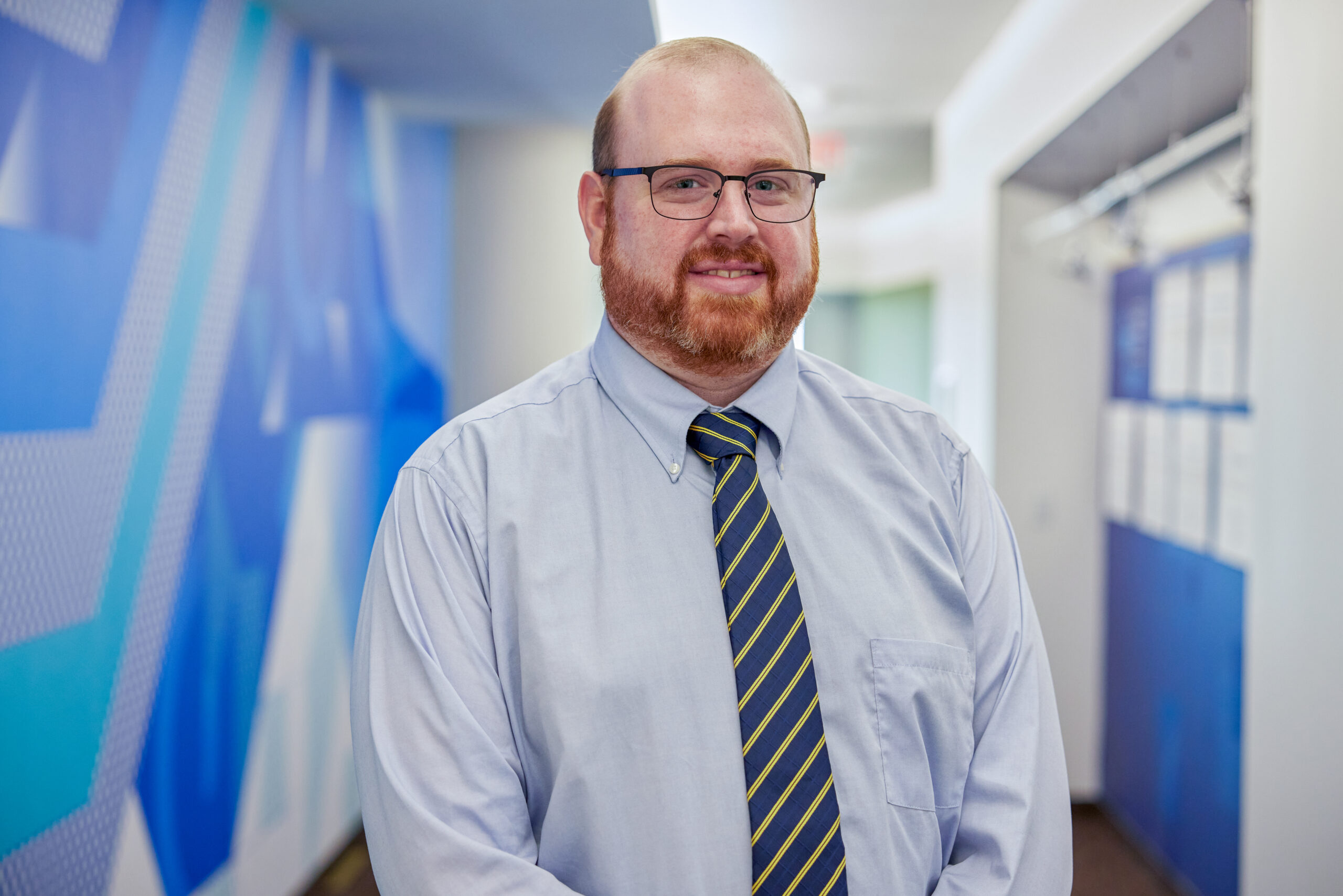
William: I also like to do a lot of hands-on stuff — even though you can’t touch code. I’ll do PowerPoint slides for definitions and terms they need to know — don’t judge me, Ben [laughs]. But when it comes to writing data analytics scripts or running a certain kind of program, I like to provide examples then have students do it themselves. Because you learn best by doing. I don’t like talking at people a lot because they’ll zone out. So I come at it from, “Let’s do something interesting and cool.” And I try to find that hook that’s pertinent to their interests and keep them engaged.
How will you measure the success of the program? How about your role in it?
Benjamin: My goal is not only to give them an education but a taste of what it’s like in the workplace. Sure, part of success is they passed their classes, they walked across the stage, and they’re going into a job. Or maybe they’re wanting to continue their degrees. But for me, helping them be successful in life is giving them the tools they need to go out and actually do something in the world. There’s nothing better than running into former students years later and hearing about how much they enjoyed taking your classes or have been successful in finding a career or continuing working on their education.
William: I relate this back to a programming course.
“My philosophy is, ‘If I can teach you the logic of how to program, the language shouldn’t matter.’ So my goal is to have my students be able to answer, ‘Do you understand the logic behind this?’ It’s up to me to teach them the foundational aspects.” —William Rochelle
And what makes me feel good is later in a [higher-level] course they say, “Oh, that stuff we talked about, I’m using that every day in this class…”
This level of understanding is hard to measure. But have we produced students who can communicate effectively and are driven by curiosity? Do they have a good foundation? When they get that job and they don’t know exactly what to do, my hope is that I’ve given them the tools to figure it out.
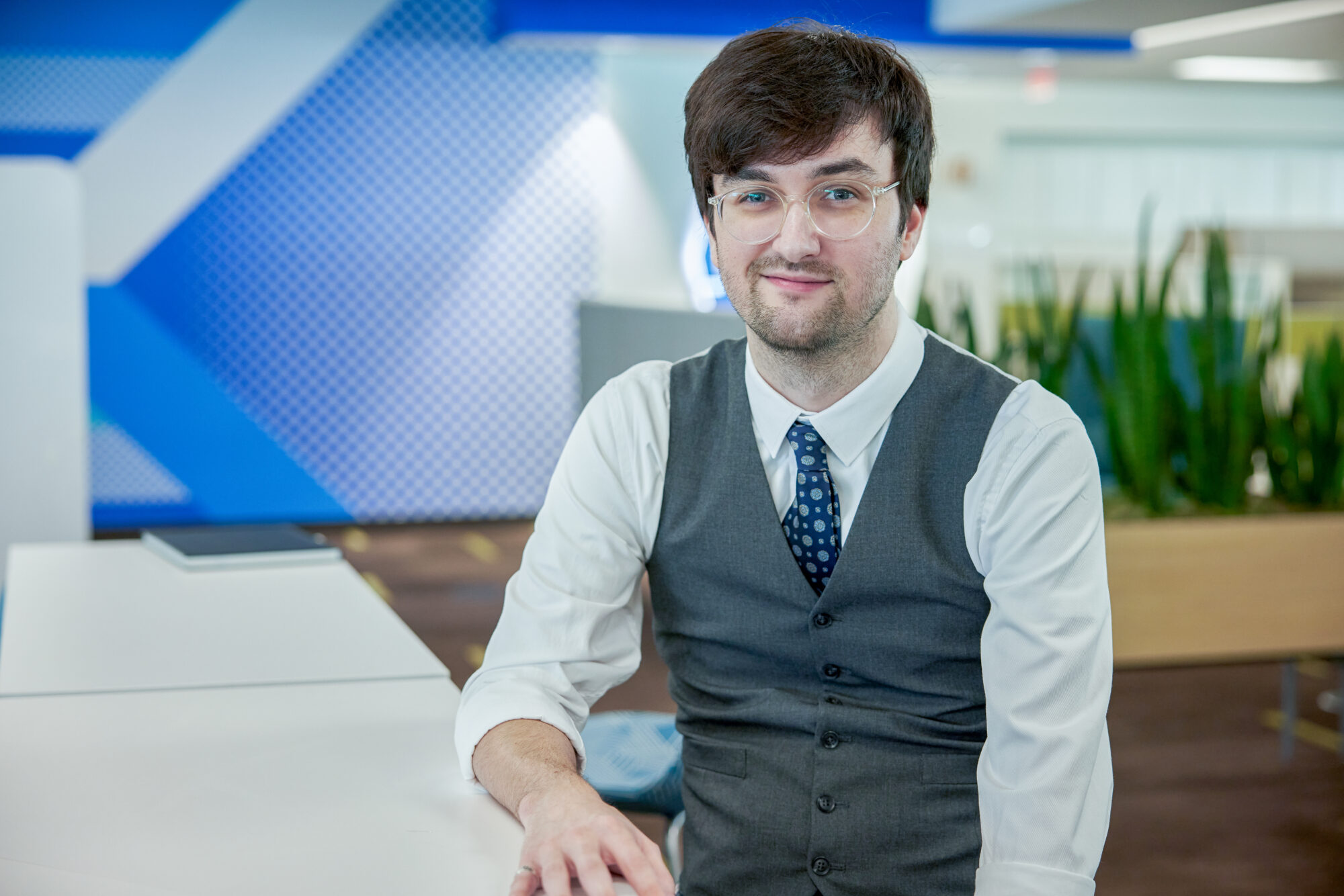 What’s your elevator pitch for students who may not have considered BlueSky Institute?
What’s your elevator pitch for students who may not have considered BlueSky Institute?
Benjamin: Beyond earning a degree in 27 months and a job offer from BlueCross, the cohort model is critical. Our students are a step above because of it. They get to work with each other, they’re taking the same classes, and they build friendships and relationships with ETSU and BlueCross staff.
“They’re getting a full college experience. They have mentorships, they have internships, and they’re entering the working world sooner than their peers.” —Benjamin Burton
They don’t have the same distractions that 14,000 other students on a traditional college campus might have.
William: When I used to do tours for the department and talk to students interested in computer science, I would always ask, “Do you love puzzles and problem solving?” For those already interested in computer science, you hit them with the cool things: ethical hacking, programming, making games, etc. And I approach programming and computer science stuff from the artistic side: You’re crafting something unique that does a specific thing.
“For those skeptical of the length of the program, the onus is on the students to earn their degree in 27 months. I’m honest about that.” —William Rochelle
Students have to be ready to accept that they don’t get a full winter break, they have classes over the summer, they have more responsibility than a traditional college student — and that’s a good thing. They’re pushed harder. But we’re here to show them it’s doable, and we’re committed to helping them do it.

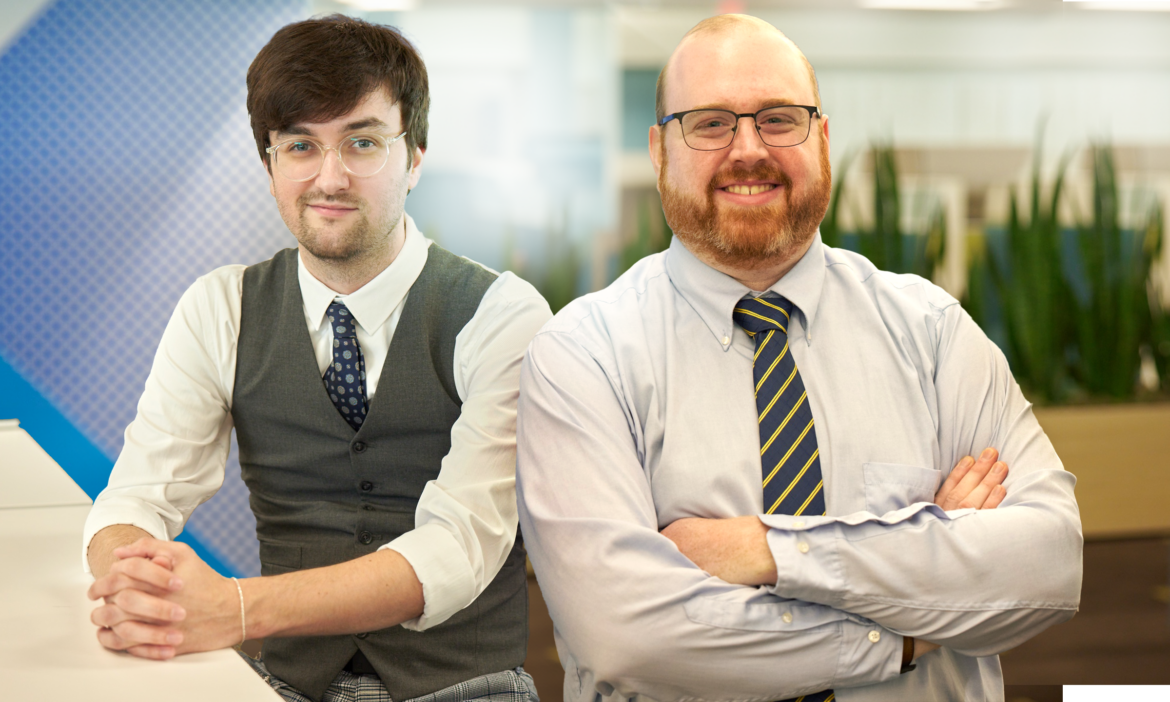
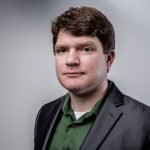 Jesse joined the BlueCross BlueShield of Tennessee corporate communications team in 2017. A Chattanooga native, he has more than 15 years’ experience in content creation, management, and strategy for consumer audiences, including a six-year stint in health care marketing.
Jesse joined the BlueCross BlueShield of Tennessee corporate communications team in 2017. A Chattanooga native, he has more than 15 years’ experience in content creation, management, and strategy for consumer audiences, including a six-year stint in health care marketing.